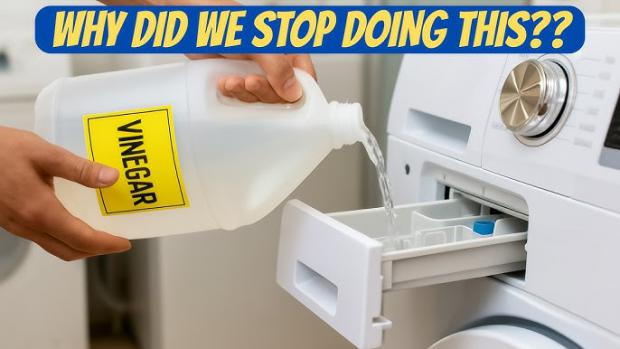
Breaking News
 What ACTUALLY Happens When You Pour Vinegar in a Washing Machine?!
What ACTUALLY Happens When You Pour Vinegar in a Washing Machine?!
 3 New Laws Just Reversed Silver Stacking (never the same)
3 New Laws Just Reversed Silver Stacking (never the same)
 A Ridiculously Easy Way to Clean the INSIDE of Your Windshield (NO Haze or Streaks)
A Ridiculously Easy Way to Clean the INSIDE of Your Windshield (NO Haze or Streaks)
 FDA Quietly Approved THIS in Your Food (And You're Eating It Daily)
FDA Quietly Approved THIS in Your Food (And You're Eating It Daily)
Top Tech News
 First totally synthetic human brain model has been realized
First totally synthetic human brain model has been realized
 Mach-23 potato gun to shoot satellites into space
Mach-23 potato gun to shoot satellites into space
 Blue Origin Will Increase New Glenn Thrust 15-25% and Make Rocket Bigger
Blue Origin Will Increase New Glenn Thrust 15-25% and Make Rocket Bigger
 Pennsylvania Bill – 'Jetsons Act' – Aims To Green-Light Flying Cars
Pennsylvania Bill – 'Jetsons Act' – Aims To Green-Light Flying Cars
 New Gel Regrows Dental Enamel–Which Humans Cannot Do–and Could Revolutionize Tooth Care
New Gel Regrows Dental Enamel–Which Humans Cannot Do–and Could Revolutionize Tooth Care
 Researchers want to drop lab grown brains into video games
Researchers want to drop lab grown brains into video games
 Scientists achieve breakthrough in Quantum satellite uplink
Scientists achieve breakthrough in Quantum satellite uplink
 Blue Origin New Glenn 2 Next Launch and How Many Launches in 2026 and 2027
Blue Origin New Glenn 2 Next Launch and How Many Launches in 2026 and 2027
 China's thorium reactor aims to fuse power and parity
China's thorium reactor aims to fuse power and parity
 Ancient way to create penicillin, a medicine from ancient era
Ancient way to create penicillin, a medicine from ancient era
What ACTUALLY Happens When You Pour Vinegar in a Washing Machine?!

I'm using 30mls in a front loader - 5% vinegar is standard; adjust accordingly!
For people that are concerned about damaging machines: The vinegar is roughly @ .4% dilution and is then further neutralised by the detergent residues. If it was neat I'd agree; but not at these concentrations - we're talking 30mls in 8 to 10 litres of rinse water. DOSING is absolutely key here.
I totally understand why people are cautious - vinegar is acidic, and yes, in high concentrations or when used neat it can definitely damage rubber seals, hoses, or metal parts over time. But the key thing here is dilution and exposure time.
In a rinse cycle, I'm using about 30 ml of household vinegar (5% acetic acid) in roughly 8-10 litres of rinse water. That works out to a solution of around 0.4% or less - far weaker than anything that would cause corrosion or damage. On top of that, it mixes with any detergent residues, which tend to be alkaline, so the acidity is partly neutralised.
Many appliance techs see damage from people using neat vinegar regularly or soaking parts directly in it, which is a completely different situation. Used properly, it's essentially acting as a mild pH neutraliser and softener, not a corrosive agent.
As with anything, dosing and common sense are key - more isn't better. If your machine's manufacturer specifically warns against it, then definitely follow that advice, but at the low concentrations used in a rinse, the risk is minimal and the long-term experiences of many users seem to support that.



